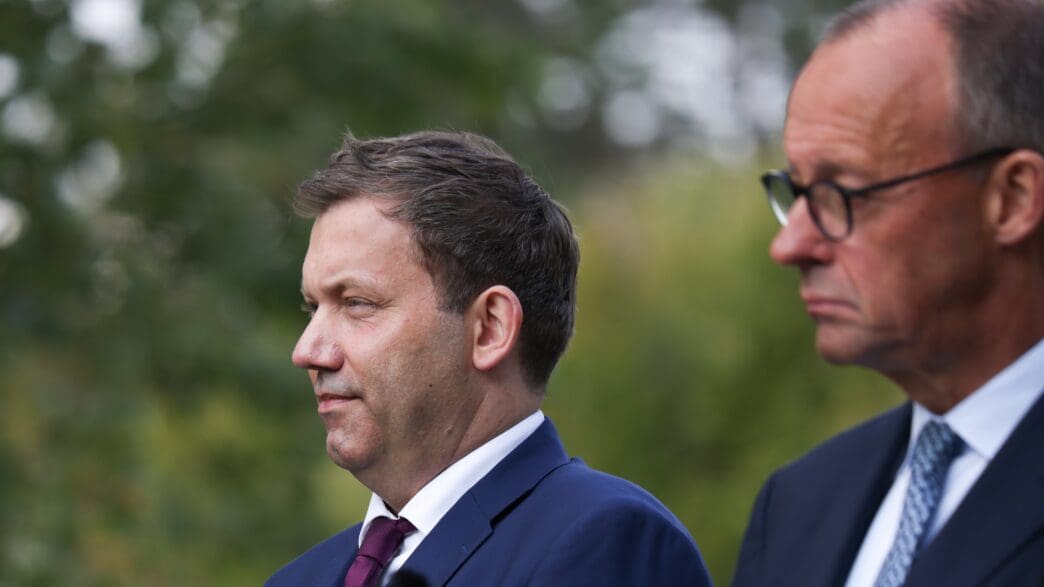Executive Summary
- German Finance Minister Lars Klingbeil and Bundesbank President Joachim Nagel publicly supported Chancellor Merz’s proposal for a unified European stock exchange to boost EU companies and economic growth.
- Both officials expressed strong opposition to broad banking deregulation in Europe, warning against a “deregulation craze” seen in the U.S. and emphasizing the importance of maintaining Europe’s robust banking supervision.
- Klingbeil and Nagel clarified that the ultimate decision to establish a unified European stock exchange rests with individual companies, considering it an “entrepreneurial decision.”
The Story So Far
- Germany’s support for a unified European stock exchange is part of a broader European Union initiative to deepen capital markets, aiming to bolster European companies and economic growth. This push for greater integration is balanced by a strong aversion to banking deregulation, which is rooted in lessons learned from the 2008 global financial crisis and current concerns about stability risks observed in more liberalized financial environments, such as recent issues with U.S. regional banks.
Why This Matters
- German officials are advocating for a unified European stock exchange to significantly bolster European companies and economic growth, signaling a strategic move towards deeper capital market integration and enhanced competitiveness. This push for market consolidation is, however, balanced by a firm opposition to banking deregulation, reflecting a commitment to maintaining regulatory stability and robust financial institutions, thereby avoiding perceived risks and preserving the gains made since the 2008 financial crisis.
Who Thinks What?
- German Finance Minister Lars Klingbeil and Bundesbank President Joachim Nagel support Chancellor Friedrich Merz’s proposal for a unified European stock exchange, viewing it as a sensible step to bolster European companies and economic growth.
- Lars Klingbeil expresses strong opposition to adopting a “deregulation craze” in Europe’s banking sector, emphasizing the need to avoid broad deregulation similar to trends in the United States.
- Joachim Nagel reinforces a cautious stance on banking deregulation, warning that relaxing regulations could quickly lead to problems and compromise the improved robustness of European banks achieved since the 2008 global financial crisis.
German Finance Minister Lars Klingbeil and Bundesbank President Joachim Nagel have both publicly supported Chancellor Friedrich Merz’s proposal for a unified European stock exchange. The officials articulated their backing on October 17 during the International Monetary Fund meetings in Washington, emphasizing the potential for such an exchange to bolster European companies and economic growth.
Support for a European Stock Exchange
Klingbeil described the proposal as a “sensible step” towards advancing the European Union’s capital markets union initiative, advocating for its “full support.” Nagel echoed this sentiment, calling it an “interesting idea” that would project a strong signal for Europe as a business hub. Both officials, however, noted that the ultimate decision to establish such an exchange rests with individual companies, as these are primarily “entrepreneurial decisions.”
Banking Deregulation Concerns
During the discussions, Klingbeil also addressed Chancellor Merz’s push for deregulation within Europe’s banking sector. He expressed strong opposition to adopting a “deregulation craze” similar to trends observed in the United States. While acknowledging the need to identify areas of excessive bureaucracy within the banking sector, Klingbeil stressed that Germany and Europe would not follow a path of broad deregulation.
Nagel reinforced this cautious stance, highlighting the importance of “great caution” when considering banking deregulation. He warned that relaxing regulations could quickly lead to problems, referencing current issues with some U.S. regional banks. Nagel underscored that Europe’s banking supervision had significantly improved since the 2008 global financial crisis, making European banks more robust. He concluded that it would be “downright absurd” to compromise these achievements.
Contextual Takeaways
The statements from Minister Klingbeil and President Nagel indicate a dual approach to financial policy in Germany: a push for deeper capital market integration through a European stock exchange, coupled with a firm resistance to banking deregulation. This stance reflects a desire to enhance European competitiveness while maintaining regulatory stability and avoiding perceived risks associated with more liberalized financial environments.







